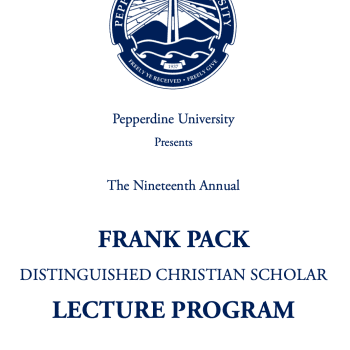At SBL in the fall, Michael F. Bird will release his opus Evangelical Theology (Zondervan) which will be a brick to carry home from the conference at 800 pages even! Well, apparently  while he was working on that he had some spare time, so he has done some “light writing” on Jesus in the Gospels. A couple of month’s ago, Mike came out with a book from IVP entitled Jesus is the Christ: The Messianic Testimony of the Gospels. In this short book, Mike makes the astounding argument that the four canonical Gospels present Jesus as “the Messiah.”
while he was working on that he had some spare time, so he has done some “light writing” on Jesus in the Gospels. A couple of month’s ago, Mike came out with a book from IVP entitled Jesus is the Christ: The Messianic Testimony of the Gospels. In this short book, Mike makes the astounding argument that the four canonical Gospels present Jesus as “the Messiah.”
It is ridiculous to me that such an argument needs to be made, but Mike is absolutely right that the history of Jesus studies and Gospels scholarship has put this into question. Mike recounts an influential (but misguided) line of thought in this subject
A common script in scholarship, with variations of lines, has been something like this: Jesus never claimed to be the Messiah; in fact, he repudiated the title. Jesus only claimed to be a prophet of God’s kingdom. The crucifixion of Jesus on trumped-up charges of being a messianic pretender was undertaken by the Judean leadership in order to have the troublesome Galilean permanently silenced. (p. 3)
 That means that the identification of Jesus as messiah by crowds and disciples was merely an “ad hoc addition to the tradition” (p. 3). In contradistinction to this scholarly theory, Mike sets out to argue that “The messiahship of Jesus comprises the primary framework in which the sum of all christological affirmations in the Gospels are to be understood, that is, all Christology is a subset of Messianology” (p. 4). The historical implications of this are clearly identified: “Jesus deliberately acted out of a messianic role, and it was this motif to his ministry that explained why the church began and why it took the shape that it did” (p. 10).
That means that the identification of Jesus as messiah by crowds and disciples was merely an “ad hoc addition to the tradition” (p. 3). In contradistinction to this scholarly theory, Mike sets out to argue that “The messiahship of Jesus comprises the primary framework in which the sum of all christological affirmations in the Gospels are to be understood, that is, all Christology is a subset of Messianology” (p. 4). The historical implications of this are clearly identified: “Jesus deliberately acted out of a messianic role, and it was this motif to his ministry that explained why the church began and why it took the shape that it did” (p. 10).
Mike does not see the identity of Jesus change drastically before and after Easter. He takes up the mission of the Messiah before, he is recognized as Messiah afterward by his disciples and followers: “The resurrection…sanctioned and so re-activated beliefs previously held about him. that is, post-Easter convictions confirmed pre-Easter expectations. The vindication of Jesus in the resurrection meant the vindication of hopes his followers had before the resurrection” (22).
Bottom line – while we recognize that the Evangelists were creative, they were not that creative, so conspiratorial that they set out to make a poor prophet into the risen Son of God (Kazantzakis style!). After this very well-reasoned introduction, Mike spends four chapters walking through the narrative of each Gospel, showing the centrality of Jesus’ messianic identity, though each Evangelist has a unique theme or perspective (Mark = “The Crucified Messiah; Matthew = “The Davidic Messiah”; Luke = “The Prophetic Messiah”; John = “The Elusive Messiah”). These fourfold chapters do precisely what Mike intends – they demonstrate that the Gospels’ messianism is not “a blanket thrown over the Jesus tradition” (143).
Now, if you are like me, you might be thinking – does anyone doubt anymore that the Gospels focus on Jesus as the Messiah? Isn’t that an outdated problem that nobody struggles with anymore? WRONG! Mike offers a choice word-byte from respected scholar Christophet Tuckett who writes: “Luke’s Jesus seems to be at most a Christ figure in name only” (see Mike’s pg. 95).
I think this a well written “semi-popular-level work,” with good dialogue partners and makes a very cogent case for a Messianic Christology (what a weird phrase, but strangely relevant to this discussion) at the core of all of the canonical Gospels. If I had one wish, it would be that he combined this book with his previous title Are You The One Who Is To Come?: The Historical Jesus and the Messianic Question (Baker, 2009). While this newer book is more literary-theological and the previous one more historical, it is tough to keep them separate because the historical issues and literary issues intertwine in the debates. I was really impressed with the previous book, and I think putting them together makes his case in the second book much stronger and thorough – too bad they are with different pubs – I would want them sold as a two-volume set!
Well, I am glad to have this in my library, and that folks like Mike are fighting for what I think is a common sense reading of the Gospels. I think his next book should be – 99 Arguments That the Pope is Catholic.















